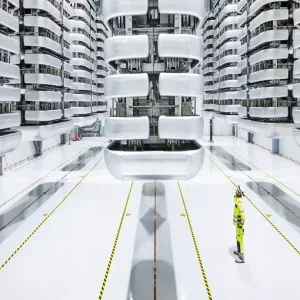The Bureau of Reclamation, Bureau of Indian Affairs, Nez Perce Tribe, Lewiston Orchards Irrigation District, and the Lower Clearwater Exchange Project, referred to as the Parties, are working together to develop innovative ways to address system-wide water supply challenges. In 2014, the Parties entered into an agreement to pursue the Water Exchange and Title Transfer Project as a comprehensive solution to those challenges. Since that time, the parties have completed environmental compliance and the construction of a pilot well to test whether the deep regional aquifer could support the additional water supply and flow needed. Lewiston Orchards Irrigation District operated the pilot well during the 2017 irrigation season, allowing for the first exchange water to remain instream for the benefit of fish and habitat in the Lapwai Creek watershed.
“We are excited about what this collaboration is already producing and how it shows what can be accomplished when we come together to work towards a common goal,” said Roland Springer, Reclamation’s Snake River area manager.
The Lewiston Orchards Project is a Reclamation project within the Lapwai Creek watershed, located predominantly on the Nez Perce Tribe Reservation. Project operations impact Endangered Species Act–listed steelhead and critical habitat, and Tribal cultural and natural resources.
Nez Perce Tribal Chairman Mary Jane Miles said, “This project will help restore and protect cultural and natural resources critical to the Nez Perce people. Its objective is the comprehensive resolution of multiple legal issues. Our progress shows the strength of the cooperative partnership that has grown around that objective, and what a focus on long-term mutual interests can achieve.”
Through contract with Reclamation, the Lewiston Orchards Irrigation District operates and maintains a system serving approximately 20,000 patrons for local domestic and irrigation purposes. The project facilities comprise Reservoir A (Mann Lake), Soldiers Meadow Reservoir, Lake Waha, four diversion structures, several feeder canals, and a system for distributing irrigation water. Frank Maresca, LOID Board President stated, “The LOID is working hard with our partners to establish a reliable water supply that will eliminate irrigation restrictions in the future while improving the natural environment that we live in as a community.”
The Parties meet annually to review progress and collaborate in establishing commitments for the implementation of work in the upcoming year. During their recent leadership meeting, all Parties agreed that this project has been an opportunity for a win-win-win solution to complex issues that are sometimes at odds with one another.






